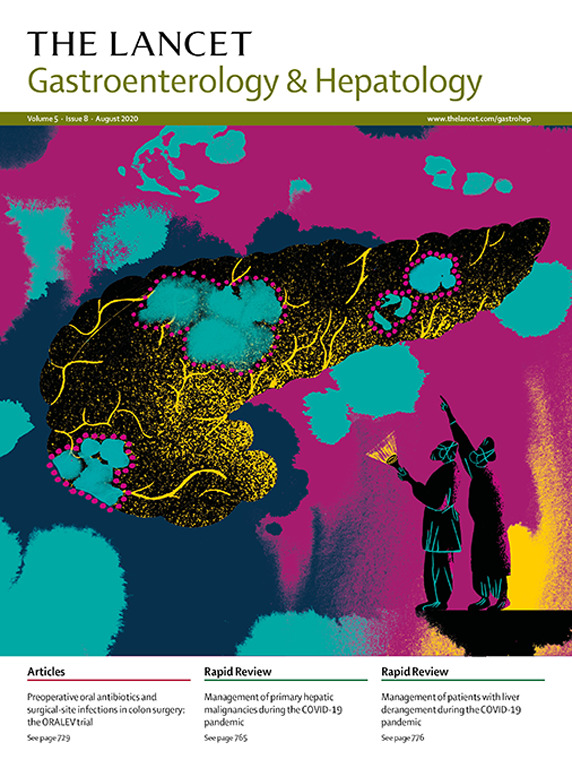The intestinal barrier: a pivotal role in health, inflammation, and cancer
IF 30.9
1区 医学
Q1 GASTROENTEROLOGY & HEPATOLOGY
引用次数: 0
Abstract
The intestinal barrier serves as a boundary between the mucosal immune system in the lamina propria and the external environment of the intestinal lumen, which contains a diverse array of microorganisms and ingested environmental factors, including pathogens, food antigens, toxins, and other foreign substances. This barrier has a central role in regulating the controlled interaction between luminal factors and the intestinal immune system. Disruptions of intestinal epithelial cells, which serve as a physical barrier, or the antimicrobial peptides and mucins they produce, which act as a chemical barrier, can lead to a leaky gut. In this state, the intestinal wall is unable to efficiently separate the intestinal flora and luminal contents from the intestinal immune system. The subsequent activation of the immune system has an important role in the pathogenesis of inflammatory bowel disease, as well as in metabolic dysfunction-associated steatohepatitis, primary sclerosing cholangitis, and colorectal cancer. Dysregulated intestinal barrier integrity has also been described in patients with chronic inflammatory diseases outside the gastrointestinal tract, including rheumatoid arthritis and neurodegenerative disorders. Mechanistic studies of barrier dysfunction have revealed that the subsequent local activation and systemic circulation of activated immune cells and the cytokines they secrete, as well as extracellular vesicles, promote proinflammatory processes within and outside the gastrointestinal tract. In this Review, we summarise these findings and highlight several new therapeutic concepts currently being developed that attempt to control inflammatory processes via direct or indirect modulation of intestinal barrier function.求助全文
约1分钟内获得全文
求助全文
来源期刊

Lancet Gastroenterology & Hepatology
Medicine-Hepatology
CiteScore
50.30
自引率
1.10%
发文量
0
期刊介绍:
The Lancet Gastroenterology & Hepatology is an authoritative forum for key opinion leaders across medicine, government, and health systems to influence clinical practice, explore global policy, and inform constructive, positive change worldwide.
The Lancet Gastroenterology & Hepatology publishes papers that reflect the rich variety of ongoing clinical research in these fields, especially in the areas of inflammatory bowel diseases, NAFLD and NASH, functional gastrointestinal disorders, digestive cancers, and viral hepatitis.
 求助内容:
求助内容: 应助结果提醒方式:
应助结果提醒方式:


